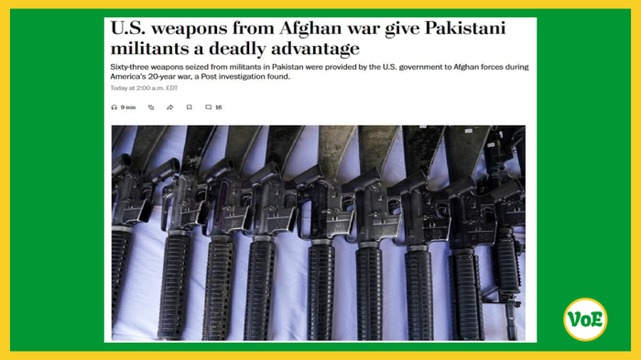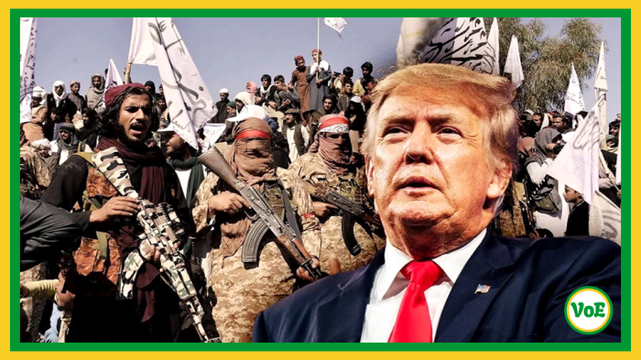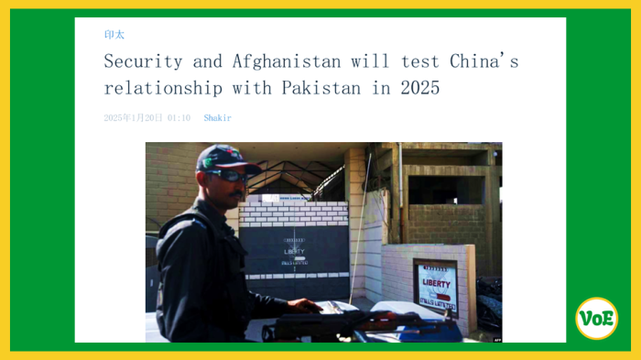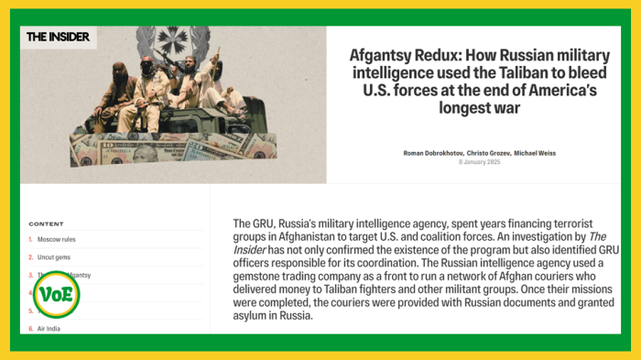WaPo’s Report About Terrorists’ Use Of US-Sourced Afghan Arms Against Pakistan Is Misleading
WaPo’s Report About Terrorists’ Use Of US-Sourced Afghan Arms Against Pakistan Is Misleading
The Pakistani Establishment shares some blame for the latest terrorist upsurge together with America and the Taliban to differing degrees, yet WaPo avoided drawing attention to this for reasons that can only be speculated.
The Washington Post (WaPo) published a detailed report last week about how “U.S. weapons from Afghan war give Pakistani militants a deadly advantage”, which claimed that some of the US-designated terrorists behind last month’s hijacking of the Jaffar Express used such arms during this infamous attack. They allegedly obtained them from the Taliban and the Pakistani borderland bazaars where they’ve supposedly been sold for the last 3,5 years. There’s no reason to doubt any of the three aforesaid claims.
What’s misleading though is the subtext throughout the piece that these American arms and the Taliban alone are responsible for the upsurge in terrorism across Pakistan. Weapons don’t cause terrorism, people do, either because bad actors exploit their poverty, they’re ideologically radicalized, and/or bent on revenge due to personal disputes, their family having been harmed or killed, or real or perceived injustices. None of this justifies terrorism, to be absolutely clear, but it contextualizes the root causes.
They’re not even remotely touched upon by WaPo, however, with it simply being taken for granted that terrorist attacks are occurring for whatever reason. Their report also only makes casual mention of how Pakistan was once accused of sheltering Taliban leaders, which is deliberately deceitful because it was also actually accused of arming the Taliban and facilitating the then-insurgent group’s logistics. The Taliban couldn’t have returned to power without Pakistan’s help over the two decades prior.
These facts don’t imply that Pakistan expected the Taliban to then arm anti-Pakistani terrorists for ideological and strategic reasons even though some earlier warned about that possibility, nor that Pakistan deserves what happened, but reminding readers about them more fairly divides the blame. On that topic, WaPo also didn’t question how so many arms were able to be smuggled into Pakistan despite Islamabad knowing what the Taliban captured, nor why they were sold openly in bazaars for so long.
These observations lead to the uncomfortable conclusion that the Pakistani Establishment, which refers to the country’s powerful armed forces and intelligence services that wield much more control over policy than the civilian government, is either incompetent and/or corrupt. They’ve practically sealed the border shut with India so much so that rarely does anything get through to Pakistan without their knowledge, however, so incompetence probably isn’t the issue.
Corruption is therefore the most logistical conclusion and it’s proven to have very serious national security consequences in the sense of facilitating, but importantly not being directly responsible for, the recent upsurge in terrorism since the Taliban returned to power in Afghanistan. Elaborating on this, some officials might have been bribed to let these arms illegally enter Pakistan while others could have wanted to profit from these sales, but the Establishment could have put a quick stop to this if it really wanted to.
This didn’t happen even after signs of an impending terrorist upsurge were seen from mid-2022 onward, which coincides with them redirecting their institutions’ focus towards suppressing the political opposition instead of remaining committed to ensuring their country’s national security interests. The Pakistani Establishment therefore shares some blame for this together with America and the Taliban to differing degrees, yet WaPo avoided drawing attention to that for reasons that can only be speculated.
Disclaimer: The views expressed in this article are author’s own and do not necessarily reflect the editorial policy of Voice of East.
7 Courses in 1 – Diploma in Business Management
#AfghanTaliban #Afghanistan #Pakistan #PakistanArmy #TehrikITalibanPakistan #Terrorism #Terrorists #TTP #USA



